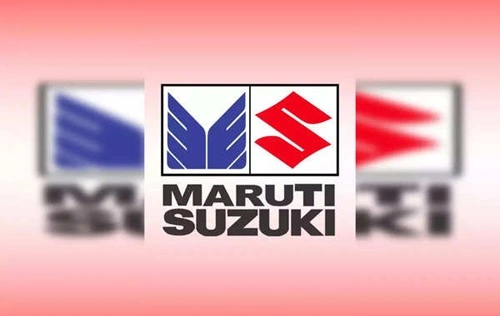Maruti Suzuki, the automotive giant and India’s leading car manufacturer, has long been synonymous with affordable and reliable vehicles. As a subsidiary of Japan’s Suzuki Motor Corporation, Maruti Suzuki enjoys a dominant market share in India, accounting for nearly half of the passenger vehicle market. Known for models like the Swift, Alto, and Wagon R, Maruti Suzuki is a household name and has played a pivotal role in popularizing cars among the Indian middle class. However, as the auto industry transitions toward electric vehicles (EVs) and faces increasing environmental regulations, Maruti Suzuki is at a crossroads. This SWOT analysis explores Maruti Suzuki’s strengths, weaknesses, opportunities, and threats, providing a comprehensive view of its market position and future outlook.

Strengths
1. Strong Brand Equity and Market Dominance: Maruti Suzuki has built a reputation as India’s most trusted car brand, with a loyal customer base across urban and rural regions. The company’s reliability, affordable pricing, and widespread service network have cemented its position as the market leader. This strong brand equity translates to high customer retention, brand loyalty, and the ability to drive consistent sales. Maruti Suzuki holds around 43% of the passenger car market, giving it a substantial edge over competitors.
2. Wide Product Range and Affordability: Maruti Suzuki’s extensive product portfolio caters to a variety of customer segments, from entry-level hatchbacks like the Alto and S-Presso to popular sedans like the Dzire and compact SUVs like the Vitara Brezza. This wide range allows the company to reach a diverse consumer base, including first-time buyers, young professionals, and families. Additionally, Maruti Suzuki’s focus on affordability resonates with India’s price-sensitive market, helping it maintain a competitive advantage over brands with premium pricing.
3. Extensive Distribution and Service Network: Maruti Suzuki boasts one of the most extensive dealership and service networks in India, covering urban centers and remote areas alike. This network makes its vehicles accessible to a wide audience and provides customers with easy access to after-sales service. Maruti’s service points, coupled with affordable spare parts, have further bolstered customer loyalty, especially among budget-conscious buyers in semi-urban and rural regions.
4. High Fuel Efficiency and Low Maintenance Costs: Maruti Suzuki vehicles are known for their fuel efficiency and low maintenance costs, which appeal to Indian customers, where fuel expenses and servicing costs are key considerations. With frequent hikes in fuel prices, the demand for fuel-efficient vehicles remains high, making Maruti’s models popular among Indian consumers. This focus on cost-effectiveness aligns well with the needs of the average Indian consumer, who values economical vehicles.
5. Strategic Alliances and Global Synergy with Suzuki: Being a subsidiary of Suzuki Motor Corporation offers Maruti Suzuki access to Suzuki’s technological expertise and global resources. This relationship has enabled Maruti Suzuki to bring innovative yet cost-effective models to the Indian market. Additionally, Suzuki’s global manufacturing and R&D capabilities provide Maruti with an edge in technology transfer, allowing it to benefit from cost efficiencies and design improvements.
Weaknesses
1. Limited Presence in the Premium Segment: Despite its strong foothold in the entry-level and mid-range segments, Maruti Suzuki has struggled to establish itself in the premium car market. Attempts to enter the premium segment with models like the S-Cross and Kizashi were met with limited success, as the brand is still largely perceived as a budget-friendly choice. This limited presence in the high-margin premium segment has restricted Maruti Suzuki’s ability to diversify its customer base and increase profitability in the growing luxury car market.
2. Lagging in Electric Vehicle (EV) Transition: While competitors such as Tata Motors and Mahindra have already introduced electric vehicles in India, Maruti Suzuki has been slower to enter the EV market. The company has announced plans to launch EV models, but the delay puts it at a disadvantage in the face of increasing regulatory pressure and rising consumer interest in green vehicles. As the government pushes for greener mobility solutions, Maruti’s slow adoption of EV technology may impact its long-term growth and market position.
3. Heavy Reliance on Domestic Market: Maruti Suzuki’s operations are heavily focused on the Indian market, with limited international exposure. While its domestic dominance is advantageous, this reliance on a single market makes it vulnerable to any economic downturns, regulatory changes, or shifts in consumer behavior in India. A more diversified geographic footprint could help Maruti Suzuki mitigate risks associated with dependency on a single market.
4. Environmental Concerns and Emission Standards: With a significant portion of its sales coming from petrol and diesel vehicles, Maruti Suzuki faces increasing scrutiny from environmental regulators. As emission standards become stricter, the company will need to adapt to meet these requirements, which may lead to increased production costs and affect profit margins. The push toward sustainable practices and cleaner technologies could pose a challenge if Maruti Suzuki does not transition swiftly.
Opportunities
1. Growing Demand for Compact SUVs: The compact SUV segment is one of the fastest-growing in India, driven by changing consumer preferences and the desire for vehicles that offer a mix of space, fuel efficiency, and affordability. Maruti Suzuki’s existing models, like the Vitara Brezza, have already gained popularity in this segment. With increasing demand, Maruti has the opportunity to introduce new models and variants in the compact and mid-size SUV categories to capture a larger market share.
2. Rising Middle-Class Income and Urbanization: India’s growing middle class, coupled with rapid urbanization, is driving demand for private vehicles. As income levels rise, more consumers can afford cars, particularly entry-level models that Maruti Suzuki specializes in. This trend is expected to continue, providing Maruti with a steady stream of new buyers and an opportunity to expand its market share further in urban and semi-urban regions.
3. Electric Vehicle and Hybrid Technology: With the Indian government promoting EV adoption and providing incentives for electric and hybrid vehicles, Maruti Suzuki has an opportunity to enter this segment and capture a growing market of environmentally conscious consumers. While Maruti Suzuki is currently behind some competitors, its planned investment in EV and hybrid technology development could allow it to leverage its brand strength and distribution network to gain a foothold in the EV market once its models are launched.
4. Expansion in Rural Markets: Maruti Suzuki already has a strong presence in rural India, and the potential for growth in these regions is substantial. The government’s push toward rural electrification, improved road infrastructure, and rising disposable incomes in rural households are all favorable trends. Maruti Suzuki’s low-cost models, combined with its extensive rural network, make it well-positioned to increase its footprint in these areas and drive higher sales volumes.
5. Strategic Partnerships and Alliances: Maruti Suzuki can benefit from forging strategic partnerships with technology providers, EV component manufacturers, or other automotive players to accelerate its EV strategy and access advanced technology. Collaborations in the EV ecosystem, such as battery swapping, charging infrastructure, and shared mobility, could enhance Maruti Suzuki’s capabilities and future offerings in the electric mobility space.
Threats
1. Intense Competition in the Automotive Industry: India’s automotive sector is highly competitive, with both domestic players like Tata Motors and Mahindra & Mahindra and global giants like Hyundai, Honda, and Toyota vying for market share. Additionally, the entry of electric vehicle startups and Chinese automakers looking to expand into India could further intensify competition. This competitive landscape creates price pressures and could impact Maruti Suzuki’s market share if it does not innovate or adapt quickly.
2. Regulatory Challenges and Emission Standards: India’s government has implemented stricter emission norms, such as BS6 standards, and may introduce more stringent regulations in the future as part of its environmental commitments. Compliance with these standards requires investments in cleaner technologies, which may raise production costs. Non-compliance or delays in transitioning to green vehicles could affect Maruti Suzuki’s reputation and bottom line.
3. Rising Fuel Prices and Shift to Alternative Mobility Solutions: With frequent hikes in fuel prices, consumers are increasingly seeking fuel-efficient or alternative mobility solutions. Rising fuel costs may discourage people from purchasing traditional internal combustion engine (ICE) vehicles, favoring electric vehicles or hybrid options instead. This shift toward alternative mobility solutions could impact Maruti Suzuki’s sales if it is unable to rapidly offer competitive EV options.
4. Supply Chain Disruptions and Semiconductor Shortages: Global supply chain disruptions and semiconductor shortages have impacted the automotive industry worldwide, leading to production delays and increased costs. As Maruti Suzuki depends on imports for certain components, such disruptions can directly affect its production capacity, resulting in longer waiting periods for customers and potential revenue loss.
Future Outlook
Maruti Suzuki is well-positioned to maintain its dominance in India’s automotive market, with a strong brand, extensive distribution network, and a commitment to affordability. However, the company must adapt to changing trends, including the shift toward EVs, premium models, and sustainability, to sustain its market leadership. By expanding its EV portfolio, enhancing its premium offerings, and leveraging growth in rural and urban markets, Maruti Suzuki can remain resilient amidst industry changes.
In conclusion, while Maruti Suzuki’s strengths provide a solid foundation, its future success will depend on timely adaptations to industry shifts, a strategic approach to the EV transition, and continued innovation. With proactive steps, Maruti Suzuki can balance its legacy of affordability and reliability with the needs of a greener, technology-driven automotive future in India.

